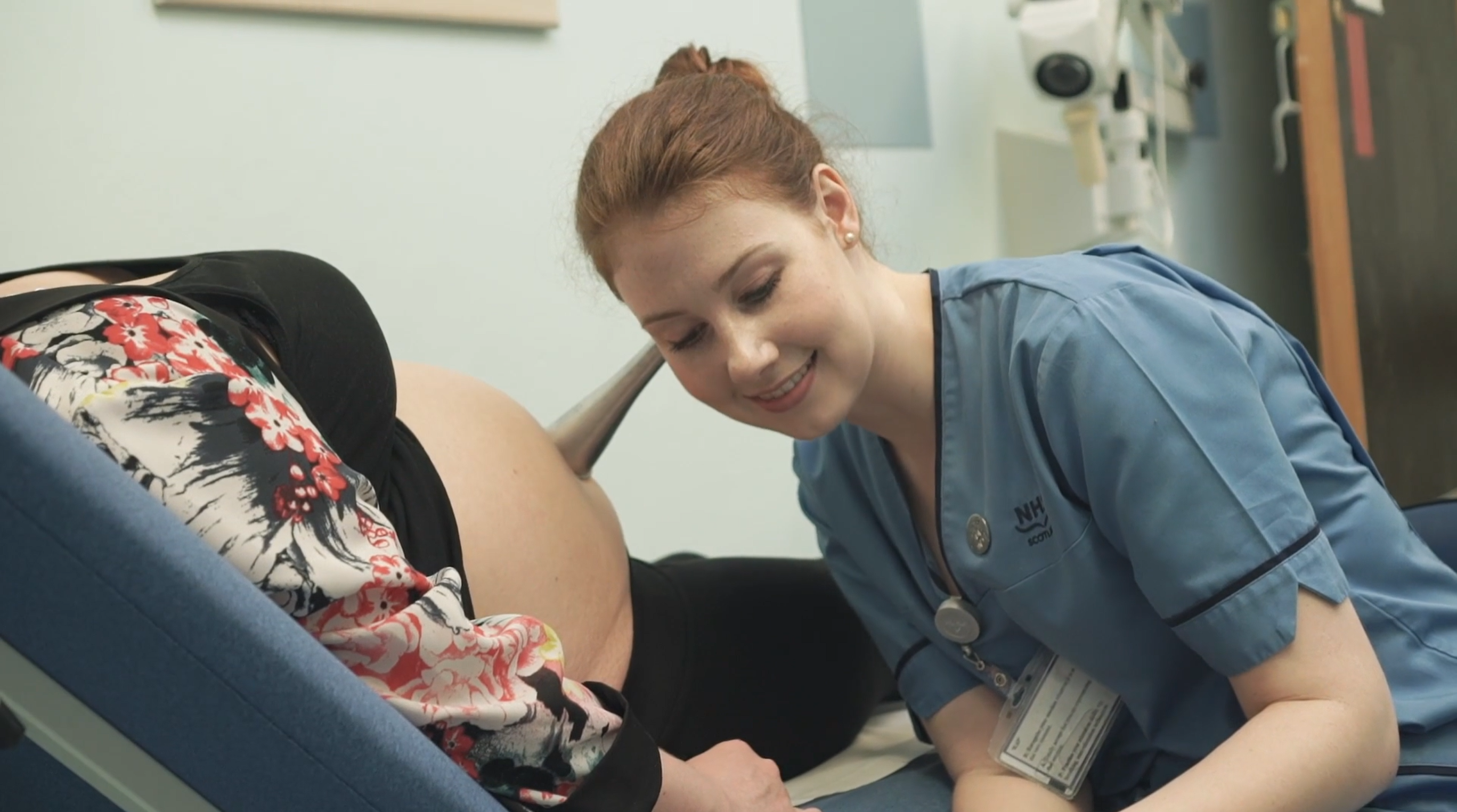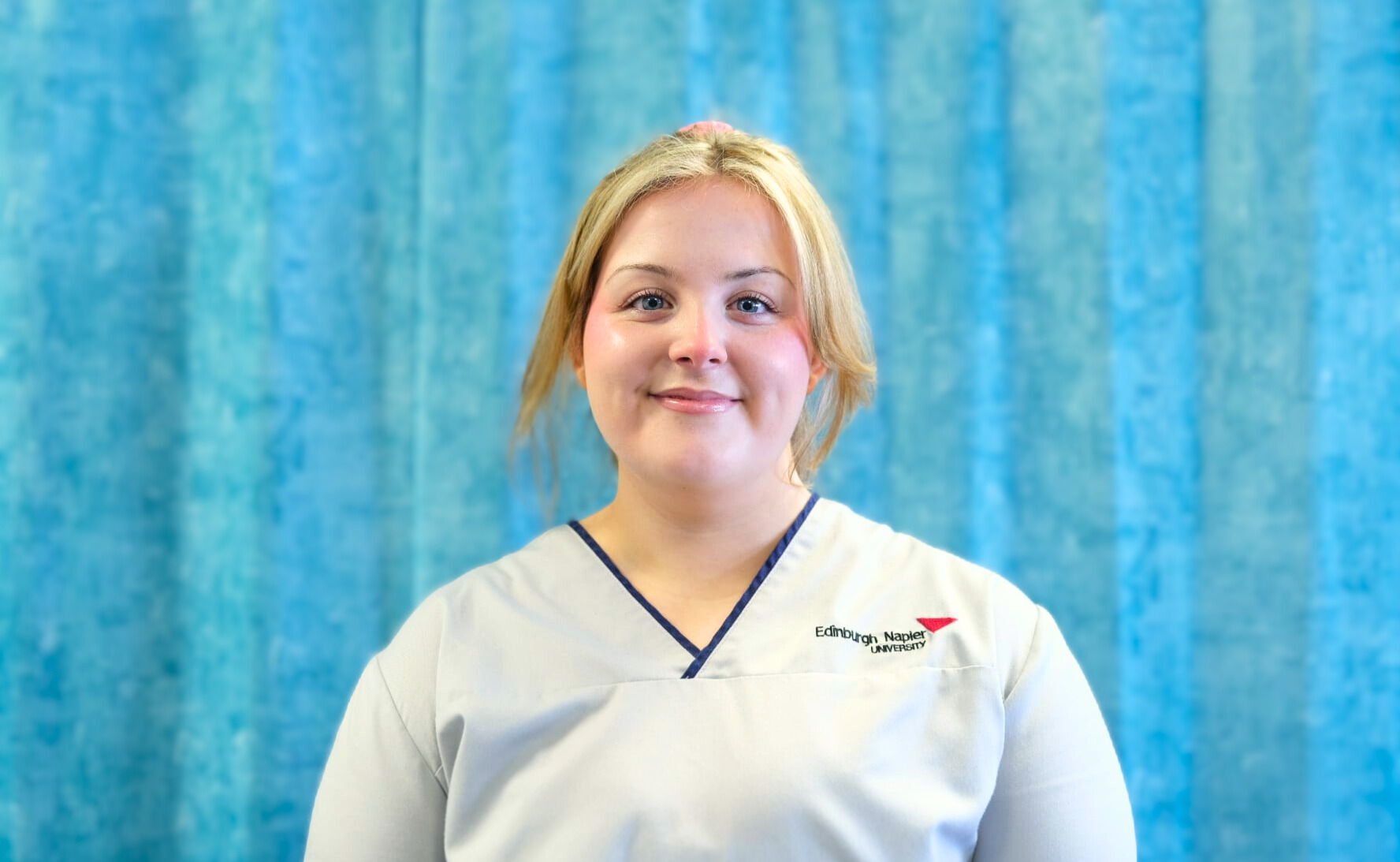Previous
Midwifery
To become a midwife in the NHS, you must complete a pre-registration undergraduate or postgraduate degree programme approved by the Nursing and Midwifery Council (NMC).
As lead maternity healthcare professionals, midwives support women and birthing people to have a safe and positive birth and early parent experience. Midwives provide evidence-based, respectful, and compassionate care from pre-pregnancy to early parenthood.
Being a knowledgeable, skilled, and trusted companion during the childbearing experience and working effectively within a multidisciplinary team is central to a midwife's role.
Midwives also support women and birthing people in making informed decisions about their care during pregnancy, childbirth, and postnatal periods, including medical interventions.

If you're interested in a career as a midwife, useful school subjects include:
Speak to your guidance teacher or careers adviser about subjects offered at your school.

You may find it helpful to get some healthcare experience by doing a work placement or volunteering. You’ll get training, increase your knowledge, and learn new skills. This could help you when applying to college, university, or a new job with NHSScotland.
There are lots of different education and training pathways to becoming a midwife.
If you choose to go to college, you could do an HNC in Healthcare Practice at SCQF level 7. This qualification can contribute to your requirements for entry to an undergraduate pre-registration midwifery degree programme.
Search for college courses on My World of Work.
In Scotland, the following universities offer undergraduate programmes in midwifery at SCQF level 9, approved by the NMC:
Midwifery undergraduate programmes usually take 3 years of full-time study.
Search for midwifery undergraduate degree programmes on My World of Work.
Routes into pre-registration midwifery undergraduate degree programmes for midwifery support workers and midwifery care assistants include:
Find out more about routes into midwifery for support workers.
Some universities offer a 3-year postgraduate master's-level route at SCQF level 11 for pre-registration midwifery.
Search for postgraduate degree programmes on My World of Work.
You can return to practice if you are a former Nursing and Midwifery Council (NMC) registered midwife.
You'll need to meet the NMC's practice hours requirements before you start your readmission application.
If you're unable to meet the practice hours requirement, you can complete one of the following to update your knowledge and skills:
You’ll also need an NMC Statement of Entry confirming your previous midwife registration.
Find out more about the return to practice requirements for midwives.

One of the most important aspects of being a midwife is building relationships with women and birthing people so that they stay well during their pregnancy. Promoting healthy lifestyle choices during this time can give their newborn baby the best start in life.
You’ll care for women or birthing people and their families from many different backgrounds with different needs. You’ll help them learn about pregnancy and childbirth processes and make decisions about their health and options for care throughout their journey.
In straightforward pregnancies, you'll be the lead carer, responsible for planning, managing, and delivering care. If a woman’s or birthing person’s pregnancy is complicated, you’ll work closely with health and social care services to make sure the appropriate support is available.
In your role, you’ll support women and birthing people in making decisions about pregnancy screening to check for abnormalities and monitor progress. This includes providing information about the reasons for screening, the risks, the results and the options available to help them make decisions about their care.
You’ll provide emotional and practical support for women or birthing people and their birthing partners during labour, monitoring progress and helping them to have a positive experience.
Midwives at all levels need to provide leadership, making sure the quality of care is as good as it can be. Good partnership working with other members of the health and social care team is essential for making sure women and birthing people receive the best care. Midwives also provide supervision for students in the practice setting, helping them gain the practical skills and experience required for their course.
Typical tasks include:
You'll need these skills:
Midwives work with other health and social care professionals in urban, remote, and rural settings, including:
You could work in several different settings, sometimes all in one day, including:
Shannon is a newly qualified midwife at NHS Forth Valley. She shares the top 3 skills you'll need if you want to become a midwife.
Compassion is really important as you're going to be caring for women and families from all walks of life. Adaptability is key, as every day is different, every patient is different, and we have to utilise lots of different skills. Communication is really important, as you're continuously communicating with your colleagues, your patients, and also their family members.
Healthcare is constantly improving, and technology is evolving. The population's needs are changing, so you’ll continually update your knowledge on healthcare issues and practice to maintain your professional registration.
Once registered as a midwife, there are ongoing requirements for education and skills development. You’ll also have lots of opportunities to go further and learn more.
In your first year as a newly qualified midwife, the Flying Start programme will provide extra support and guidance.
Find out more about the Flying Start programme.
Revalidation is a process that midwives must follow to maintain their registration with the NMC every 3 years.
It is an ongoing process throughout your career as a midwife and aims to:
Learn more about NMC revalidation.
In the NHS, you may choose to be a midwife throughout your career, keeping up to date through continuing professional development. However, taking extra courses and learning in the workplace could lead to progression through the clinical career pathway to a senior, advanced, or consultant level. You may lead a team of midwives, a whole department, or a service as a lead midwife or service manager.
Research and education are also career paths open to midwives, building the evidence to inform developments in practice and educating the midwives of the future.
A number of initiatives have been developed to support midwives as they move forward in their careers, including:
During your career, you’ll make sure the highest standards of care are delivered in the way service users and the wider public expect. This includes motivating and empowering others to place dignity, privacy, and compassion at the centre of their practice.
When you become a qualified midwife, you must register with the Nursing and Midwifery Council to work in the NHS.
Find out more about the Nursing and Midwifery Council (NMC).
Qualified midwives can also join the Royal College of Midwives (RCM). It is a professional organisation and trade union that supports midwives, maternity care assistants, and maternity support workers.

Discover the skills and qualifications you’ll need for each role and what the work will be like.
Explore careers
Our blog includes how-to guides, case studies, and career resources.
Discover more